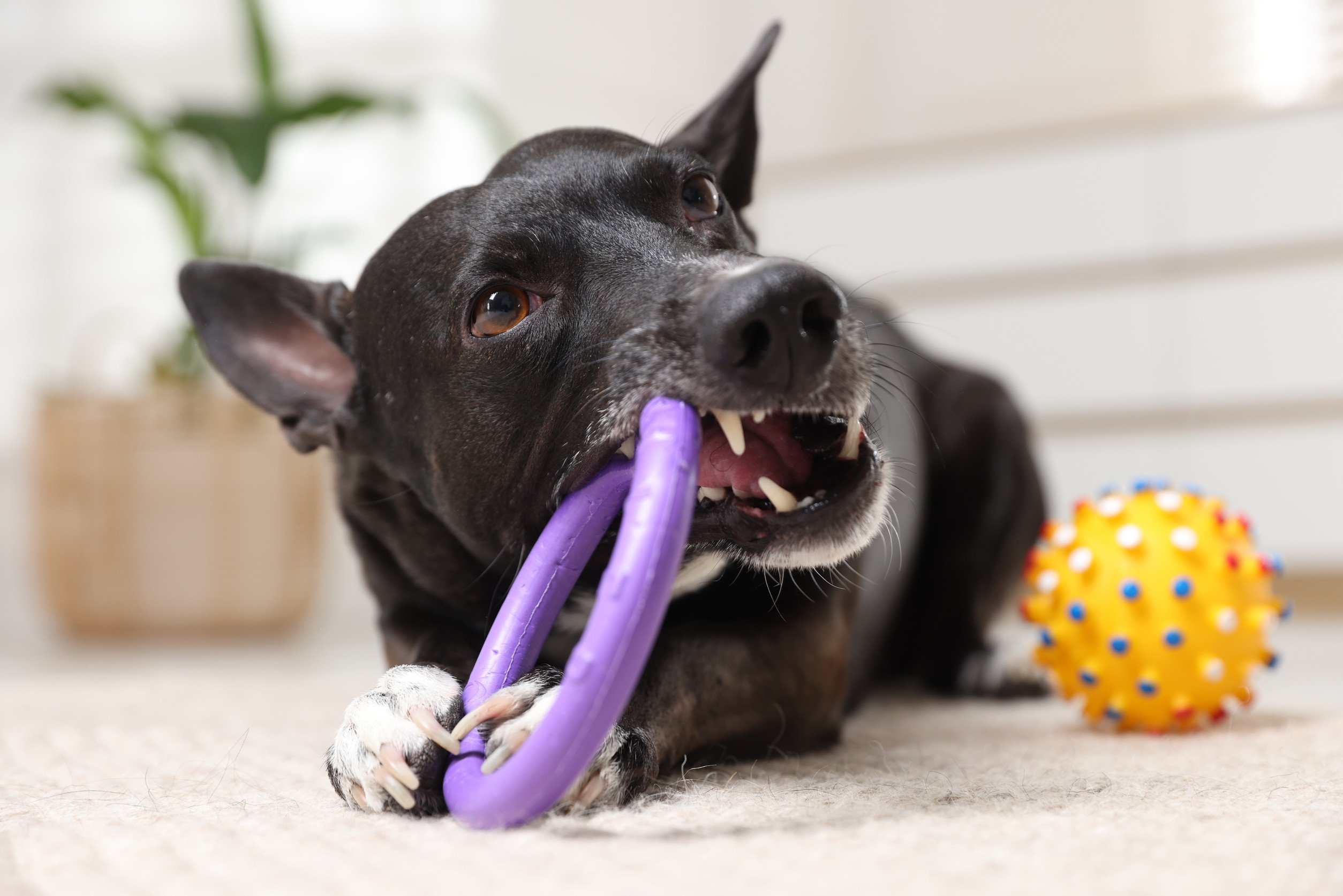3 min read
Jack Daniel’s v. VIP Products: Parody Dog Toy Not Automatically Protected
Joe Whitcomb
:
October 29, 2025

Background
VIP Products LLC manufactured a rubber dog toy called “Bad Spaniels,” designed to resemble a bottle of Jack Daniel’s whiskey. The toy’s label featured similar fonts and design elements, replacing “Jack Daniel’s” with “Bad Spaniels” and “Old No. 7 Brand Tennessee Sour Mash Whiskey” with “The Old No. 2 On Your Tennessee Carpet.” Jack Daniel’s Properties, Inc. owned the trademarks for its bottle design, label, and brand elements. The company objected to the toy’s production, asserting that it infringed and diluted its trademarks under the Lanham Act.
After receiving a cease-and-desist letter, VIP Products filed a declaratory judgment action seeking a ruling that its “Bad Spaniels” toy did not infringe or dilute Jack Daniel’s marks. Jack Daniel’s counterclaimed for trademark infringement and dilution by tarnishment, arguing that the product’s humorous references to dog excrement damaged the brand’s reputation.
District Court Proceedings
The United States District Court for the District of Arizona denied VIP’s motion for summary judgment and held that the company’s use of Jack Daniel’s trademarks was commercial in nature. The court determined that VIP had used the whiskey’s design elements as source identifiers for its own product rather than solely as expressive content. Following a bench trial, the court found that the “Bad Spaniels” toy was likely to cause consumer confusion and tarnish Jack Daniel’s reputation. The court entered judgment for Jack Daniel’s on both infringement and dilution claims.
Ninth Circuit Decision
VIP Products appealed to the U.S. Court of Appeals for the Ninth Circuit, which reversed the district court’s ruling. The Ninth Circuit applied the Rogers v. Grimaldi test, a First Amendment threshold test used to protect expressive works from trademark infringement liability. It held that the “Bad Spaniels” toy was an expressive work because it conveyed humor and commentary. Under Rogers, the infringement claim could proceed only if Jack Daniel’s proved that the use had no artistic relevance or explicitly misled consumers—standards the court found unmet. The Ninth Circuit also dismissed the dilution claim, concluding that the toy’s parody was a noncommercial use exempt from liability under 15 U.S.C. § 1125(c)(3)(C).
Supreme Court Review
Jack Daniel’s petitioned for certiorari, and the Supreme Court granted review to address whether the Rogers test applied when a trademark was used to identify the source of the defendant’s own goods, and whether the noncommercial use exclusion shielded parody products that functioned as source identifiers.
Justice Kagan delivered the unanimous opinion of the Court, holding that the Rogers test did not apply when an alleged infringer used another’s trademark as a designation of source for its own goods. The Court emphasized that the Rogers test, originally developed for expressive titles like films and songs, protected only non-source-identifying uses of trademarks. Because VIP Products used the “Bad Spaniels” design to identify its product and brand, the Court ruled that the standard Lanham Act likelihood-of-confusion analysis applied.
The Supreme Court rejected the Ninth Circuit’s conclusion that the First Amendment required a threshold inquiry whenever a mark conveyed a humorous or expressive message. It explained that most trademarks carry some expressive content, and extending Rogers to all such cases would undermine core trademark protections. The Court held that when a mark serves a source-identifying function, it falls squarely within the scope of traditional infringement analysis.
Dilution and Parody Analysis
Regarding Jack Daniel’s dilution claim, the Supreme Court held that the Lanham Act’s exclusion for “noncommercial use” does not automatically protect parodies that employ a mark as a source identifier. The Court reasoned that this interpretation would nullify the statutory limitation in the fair-use exclusion, which denies protection for parody or commentary when a mark is used to designate the source of a product. Because VIP’s use of the “Bad Spaniels” design identified its own goods, it could not invoke either the fair-use or noncommercial exclusions.
The Court vacated the Ninth Circuit’s decision and remanded the case for further proceedings. It directed the lower courts to evaluate Jack Daniel’s infringement claims under the traditional likelihood-of-confusion standard and to reconsider the dilution issue consistent with its holding.
Court’s Ruling
On June 8, 2023, the Supreme Court ruled that VIP Products’ use of Jack Daniel’s trademarks constituted a source-identifying use subject to ordinary trademark scrutiny. The Court vacated the Ninth Circuit’s decision and remanded the case for renewed consideration under the Lanham Act. The decision clarified that parodic or humorous expression does not exempt a party from standard infringement analysis when the mark functions as a brand identifier.
Assistance with Trademark Law Matters
If your business is involved in a trademark dispute, brand protection issue, or litigation concerning parody, dilution, or infringement, Whitcomb, Selinsky PC assists with trademark law matters. Contact our team to learn how we can help you protect your brand and resolve complex intellectual property challenges.


